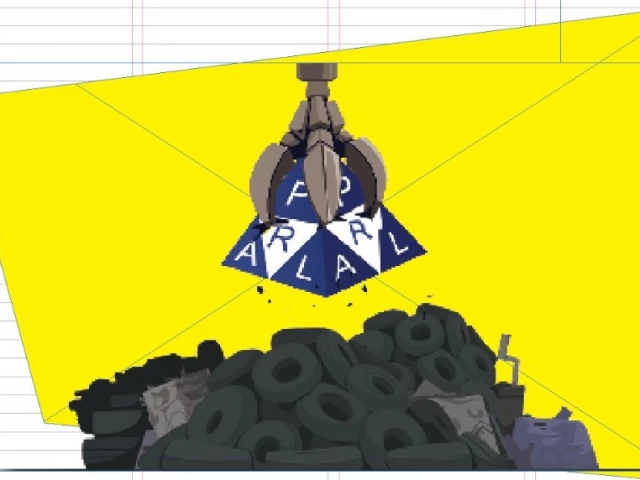ISLAMABAD:
The chief executive officer of Pakistan Revenue Automation Limited (PRAL) has refused to get a temporary extension in his tenure, creating fresh challenges for the government whose decision to either shut down or restructure the entity has already sent ripples among the employees.
The PRAL board had offered CEO Amir Malik an extension until a new head was appointed, according to correspondence seen by The Express Tribune. PRAL serves as the backbone of Pakistan’s tax system.
Malik’s extended tenure is ending next week, which comes just as Prime Minister Shehbaz Sharif has instructed that PRAL be wound up and replaced with a new, more efficient entity.
Sources said Malik did not accept the board’s offer to stay on temporarily, arguing that neither the PRAL board nor the Federal Board of Revenue (FBR) defended the organisation before the prime minister. The government has not yet advertised the position of chief executive in the press.
When contacted, a senior FBR official said that the government would hire a new full-time CEO from the market.
Malik did not respond to a request for comments.
Uncertainty about PRAL’s future first emerged when the prime minister directed its closure last month. Later, the government said the meeting minutes had not been properly recorded and that the PM wanted to restructure PRAL, not shut it down.
After a story appeared in The Express Tribune, the PRAL management and board issued a statement stating that the recent discussions on modernisation had led to a decision to pivot the existing structure of PRAL to a new, state-of-the-art organisation as part of FBR’s digital transformation strategy.
PRAL will deliver enhanced functionality, financial autonomy, and technological innovation, ensuring a world-class experience for both FBR and taxpayers, according to the statement.
It added: “We want to clarify that PRAL will continue its operations without interruption throughout this period. All current systems, services, and support functions will remain fully operational to ensure there is no disruption for our stakeholders.”
The statement further added that the transition will be gradual, well-coordinated, and seamless, ensuring stability for employees, users, and customers at every stage.
The CEO’s initial three-year term had ended in February this year, which the board of PRAL extended for a term of six months, which is going to end next week.
The decision to close or restructure PRAL has unsettled employees, raising fears over job security. A couple of senior officials have already tendered their resignations, one even seeking waiver of the notice period, according to the sources.
PRAL board members believed Malik had sought reappointment instead of a short-term extension. They said the board would advertise for a new chief executive, while Malik would have the option to contest for the post. Given his experience, they noted, he might have an edge over other candidates.
PRAL’s senior management was of the view that the entity was wrongly blamed for the outdated hardware and software systems, which have reached both end of life and end of service and are a reason for disruptions and lack of availability of some of the services.
They said the FBR also did not want to completely shut the STARR and FASTER systems, used for processing tax refunds but still running on Oracle 8.
Taxpayers file returns and pay taxes through PRAL’s system, which also serves as the depository of all tax transactions. However, the obsolete hardware and software have raised questions over the sustainability of services. The government had taken a foreign loan in 2019 to upgrade systems, but deadlines have since lapsed.
Management has also informed the board that PRAL faces difficulty in hiring experienced private-sector professionals, including a chief financial officer and chief product officer.
The PRAL management had also requested hiring of heads of software platforms and head of software development. The shortlisted names were sent to the board some time back but there were delays in finalising the candidates, said the sources.
The FBR, which relies on PRAL for its digital backbone, has also extended the income tax return filing deadline to October 31, 2025, which may also help it avoid operational disruption following PRAL’s pending closure or restructuring.
Last week, however, the PRAL board said that despite the planned restructuring the regular services will not be disrupted.

